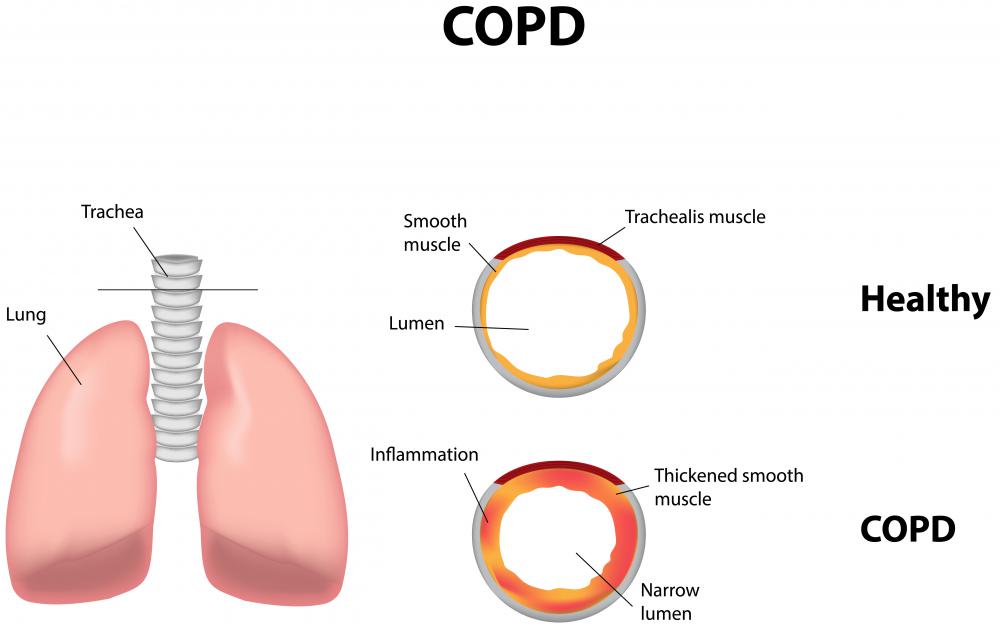At PracticalAdultInsights, we're committed to delivering accurate, trustworthy information. Our expert-authored content is rigorously fact-checked and sourced from credible authorities. Discover how we uphold the highest standards in providing you with reliable knowledge.
What Does a Respiratory Physiologist Do?
A respiratory physiologist works closely with other members of a health care team in treating respiratory malfunction. He or she performs a range of diagnostic tests designed to assess all the characteristics of lung function and assists physicians with formulating a diagnosis and treatment plan for patients with chronic obstructive pulmonary disease (COPD) or other disorders. Depending on their level of education, they may work in a hospital care settings or on research projects. The title respiratory physiologist may refer to an individual with an undergraduate degree and employed, in Great Britain, as a therapist with a role similar to that of a respiratory therapist in the United States.
Physiologists specializing in lung function generally worth with patients to restore function or to minimize disabling symptoms that interfere with quality of life. A physicians might refer a patient to a respiratory physiologist when the patient experiences difficulty breathing, has suspicious imaging studies, or develops a known respiratory diseases. Depending on the severity of the disorder, a physiologist might be involved in one time diagnosis and treatment or in long term care of a patient.

Tests performed by a respiratory physiologist might evaluate lung function during physical activity or rest. Physiologists often assess lung capacity by determining how much air a patient's lungs hold at varying phases of expiration and inspiration. Some disease processes create restrictive lung movement, preventing the lungs from filling or emptying adequately. Patients may experience breathing difficulty or discomfort while engaged in certain physical activities because of inflammatory responses or disease processes. Respiratory physiologists evaluate symptoms, assess oxygen levels, and use test results to develop an appropriate course of treatment.

Testing might also determine whether a particular treatment produces improvement or provides no benefit to a patient. Bronchial challenge testing, cardiopulmonary exercise testing, and sleep studies, are some of the evaluation procedures used by respiratory physiologists. They might use anything from handheld devices that assess breathing capacity to complex computerized technology for patient monitoring and evaluation.

A respiratory physiologist typically obtains a Bachelor of Science degree that includes general math and science courses but that also focuses on the anatomy, physiology, and pathology of the lungs. Students become familiar with the different test methods used to evaluate lung function and the types of technology involved. Upon graduation, a student may work as a therapist or enter a graduate programs to obtain a master's or doctoral degree.

Advanced degrees allow professionals to diagnose and treat patients directly or to become research scientists. Scientific studies might include drug development or research into methods of improving lung function in patients with respiratory disease. Researchers might also offer lung training that improves lung function in athletes engaged in endurance events or training in high altitude environments.
AS FEATURED ON:
AS FEATURED ON:

















Discuss this Article
Post your comments